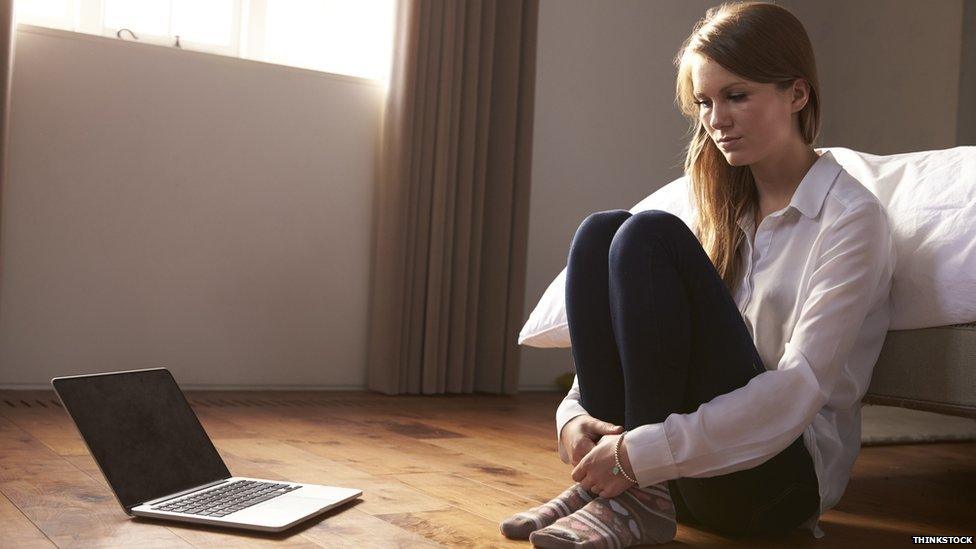Trolling, revenge porn and sexting: The law explained
- Published

New guidelines have been released about when to take people to court over online abuse.
The government claims they'll help the police tackle it but critics argue the rules are a threat to free speech.
They cover everything from trolling to sexting and revenge porn - as well as crimes you might not have heard of like virtual mobbing and doxxing.
Guidelines aren't always easy to understand and phrases like "grossly offensive" can seem pretty vague.
So we called on lawyer Iain Wilson, an expert in online abuse, to explain where the lines have been drawn.
What's changed?
The first thing to remember, Iain explains, is that the law hasn't actually changed.
"The laws around harassment were made before we even really had the internet. They were drafted with stalkers in mind, people following each other around.
"So what the guidelines are trying to do is work out how to apply those laws to the age of the internet."
He says they're essentially instructions on when you should and shouldn't take someone who's broken the law the court.
"The Crown Prosecution Service is the agency which decides whether a crime should be prosecuted or not.
"It has to consider not just the law but whether it's in the public interest to bring a prosecution."

Trolling
Trolling is a blanket term for sending someone abusive messages, or posting abusive things about them online.
"A one-off abusive comment is rarely going to justify a prosecution and someone being carted off to prison," Iain explains.
"You have to look at whether it's ongoing and whether it's sustained.
"The exception to that is where it's perhaps racially motivated or homophobic, that's likely to require close attention."
But in most cases Iain says things will stop short of a prosecution.
"Before you jump straight to court you look at other ways it can be dealt with. For young people that's whether teachers or parents can be involved, or perhaps just an informal word from the police."
Sexting and revenge porn
Iain says adults sending explicit photos to each other isn't a problem unless the messages are unwanted and persistent.
For under-18s, even though sexting is technically illegal, the guidelines don't recommend prosecuting.
"Where you've got two 15-year-olds texting each other there has to be a healthy dose of reality.
"Fifteen-year-olds often talk about sex and as long as it's consensual it's not in the public interest to take them to court."
When sexual photos of someone are shared online without their permission, it's classed as revenge porn.
Last year the government made a specific new law banning it.

Virtual mobbing and doxxing
These two might not be as well known as the likes of trolling and sexting, but they're also covered in the new guidelines.
"Virtual mobbing is where you're trying to attract attention to someone else," Iain says.
"It's where you get other people to bully them, for example by using hashtags to encourage people to join in. It can be particularly effective and devastating for the victim."
"If you have one person just texting or messaging abusive comments then that person can be blocked, but if everyone is joining in then that can make it pretty relentless and unpleasant."
Doxxing is where you share someone else's personal information, like their bank details.
"It's pure and simple harassment really. It's just a way of trying to cause someone difficulties and I think the police and the CPS are going to have to take a hard line on it."
What happens if you're found guilty?
"Offences like this tend not to result in someone going to jail unless the nature of the harassment is particularly vile or its persistent," Iain explains, "so you might be looking at community punishment orders or fines."
"But people can go to prison, although you'd be looking at relatively short sentences for the more extreme cases.
"Where it's particularly vile, for example in revenge porn cases, we have seen sentences of more than a year."
Find us on Instagram at BBCNewsbeat, external and follow us on Snapchat, search for bbc_newsbeat